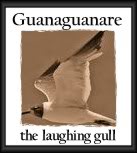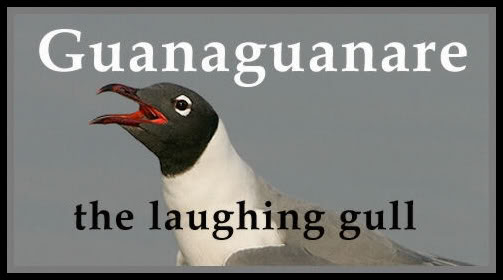It is said that this song originated in Cumana in the state of Sucre in Venezeula, and was brought to Trinidad by our Venezuelan ancestors. "Río Manzanares" remains one of the most appreciated and most frequently performed parang songs in Trinidad and Tobago. All parang groups must have this song in the repertoire and although I have provided the lyrics for the standard version, each parang band feels free to add their own verses. El Cuatro Venezolano provides a description of the river from which the song takes its name:
"El Río Manzanares, en Venezuela, tiene origen en la Serranía del Turimiquire, a 2.200 metros sobre el nivel del mar, y después de recorrer 80 km y de irrigar una cuenca de casi 1.000 km², desemboca en el Golfo de Cariaco.
El origen del nombre lo tiene en que los conquistadores españoles decidieron darle el nombre del río que atraviesa Madrid, la capital de España.
Pasa por las ciudades de Cumaná y Cumanacoa , que impactan negativamente en la calidad y cantidad del agua, debido a la presencia de industrias, núcleos urbanos legales e ilegales, zonas agrícolas y zonas de extracción de arena, haciendo peligrar tanto la flora como la fauna."
Source: El Cuatro Venezolano
Manzanares River in Venezuela has its source in the Serrania of Turimiquire, at 2,200 meters above sea level. It flows after 80 km into the Gulf of Cariaco. The river irrigates a basin of almost 1,000 sq km.
The name was given to this river by Spanish conquerors who name the river in Cumana after the Rio Manzanares that runs through Madrid, in their homeland of Spain.
The Manzanares river runs through the cities of Cumana and Cumanacoa and this has impacted negatively on the quality and quantity of water due to the presence of industries, urban centres, both legal and illegal, agricultural areas and areas of sand mining, jeopardizing both the flora and fauna.
Trinidad and Tobago is a beautiful place. People came here, and are still coming from all over the world and they share their cultures with each other. Everyone is represented in the parang, and just like we take what we need from the common pot, we also bring something of ourselves to the feast to make it truly Trinbagonian.
Now, enjoy some of our local parranderos performing this song.
Performed by Los Paramininos | Uploaded by ricardusfilipus
Performed by Paul Hernandez, Clarita Rivas & friends. Cruz de Mayo, 2011 | Uploaded by nunesie2
Performed by The Lara Brothers | Uploaded by TrinidadAndTobago101
Performed by Rancho Quemado | Uploaded by gigidetrini
Performed by Los Alumnos de San Juan | Uploaded by Jagirons
Performed by Voces Jovenes, and past members of Los Muchachos del Agua
of Tabaquite at a house parang in Chaguanas. | Uploaded by ruskaboo
Performed by Shawn "Da Ma$tamind" Noel and Leon Coldero
Uploaded by Mastamindproductions
Performed by Viva Nueva Parrranderos | Uploaded by hewi868
Parang vibes @ Tunapuna Market("Rio Manzanares") 2012 | Uploaded by zwilites
Performed by Las Estrellas | Uploaded by saddestt
RIO MANZANARES (DE VENEZUELA)
Letra de Jose A. Lopez
Musica de Jose A. Lopez
Río Manzanares,
déjame pasar, | Manzanares River, let me pass
que mi madre enferma
me mandó llamar. | My sick mother sent for me.
Mi madre es la única estrella
que alumbra mi porvenir, | My mother is the only star that lights my future
y si se llega a morir,
al cielo me voy con ella (Repeat) | And if she should die I am going to heaven with her.
Ay, Cumaná, quién te viera | Ay, Cumana, who saw you and will pass through your streets
y por tus calles pasara
y a San Francisco fuera | and out to morning mass in San Francisco.
a misa de madrugada. (Repeat)
Si el Manzanares
me diera su licencia y libertad, | If the Manzanares gave me permission,
en sus aguas me bañara
cuando la calor me da. (Repeat) I will bathe in its waters when I feel warm.
Manzanares, Manzanares,
con tus corrientes de arena, | Manzanares, Manzanare, with your flows of sands
alíviame los pesares,
llévate pronto mis penas. (Repeat) | ease my regrets, take away my sorrows quickly.
Qué refrán tan verdadero
que tienen los cumaneses: | What a true saying the Cumaneses have:
Lo que se pierde en el agua,
en el asiento aparece. (Repeat) That which is lost in the water turns up in the "seat". [?]
SOURCE
Musica de Jose A. Lopez
Río Manzanares,
déjame pasar, | Manzanares River, let me pass
que mi madre enferma
me mandó llamar. | My sick mother sent for me.
Mi madre es la única estrella
que alumbra mi porvenir, | My mother is the only star that lights my future
y si se llega a morir,
al cielo me voy con ella (Repeat) | And if she should die I am going to heaven with her.
Ay, Cumaná, quién te viera | Ay, Cumana, who saw you and will pass through your streets
y por tus calles pasara
y a San Francisco fuera | and out to morning mass in San Francisco.
a misa de madrugada. (Repeat)
Si el Manzanares
me diera su licencia y libertad, | If the Manzanares gave me permission,
en sus aguas me bañara
cuando la calor me da. (Repeat) I will bathe in its waters when I feel warm.
Manzanares, Manzanares,
con tus corrientes de arena, | Manzanares, Manzanare, with your flows of sands
alíviame los pesares,
llévate pronto mis penas. (Repeat) | ease my regrets, take away my sorrows quickly.
Qué refrán tan verdadero
que tienen los cumaneses: | What a true saying the Cumaneses have:
Lo que se pierde en el agua,
en el asiento aparece. (Repeat) That which is lost in the water turns up in the "seat". [?]
SOURCE
..............................................................................................................................
"Patria est communis omnium parens" - Our native land is the common parent of us all. Keep it beautiful, make it even more so.
Blessed is all of creation
Blessed be my beautiful people
Blessed be the day of our awakening
Blessed is my country
Blessed are her patient hills.
Mweh ka allay!
Guanaguanare
"Patria est communis omnium parens" - Our native land is the common parent of us all. Keep it beautiful, make it even more so.
Blessed is all of creation
Blessed be my beautiful people
Blessed be the day of our awakening
Blessed is my country
Blessed are her patient hills.
Mweh ka allay!
Guanaguanare













3 comments:
This is a great post about our Manzanares river song in Venezuela and it's so amazing that in Trinidad you use it for parrands,
Greetings from Venezuela, and thanks for backlinking one of our cuatro blogs!
*parang . Here in venezuela the word is "parranda"
Thank you, Adrian, for visiting and leaving your kind comments. It is my pleasure to link to El Cuatro Venezolano. It is one of my favourite blogs and a treasure trove for cuatristos.
Yes, I believe our word "parang" is a contraction of the word "parranda". We use it as a noun and a verb, so where you would conjugate "parrandear", we use "to parang" instead. More recently the word "parranda" is also being used locally in the newer compositions so it would be interesting to see if it eventually becomes an alternative for "parang."
Adrian, if you have any additional information about the song "Rio Manzanares" or any of the "parang" songs listed on this site, please let me know. Those of us who play the music and love the history are always interested in learning more about the origins of the older songs which came to us from Venezuela and other South American countries.
Thanks again for communicating. Have a wonderful Christmas and Happy New Year!
Blessings to you and yours.
Post a Comment